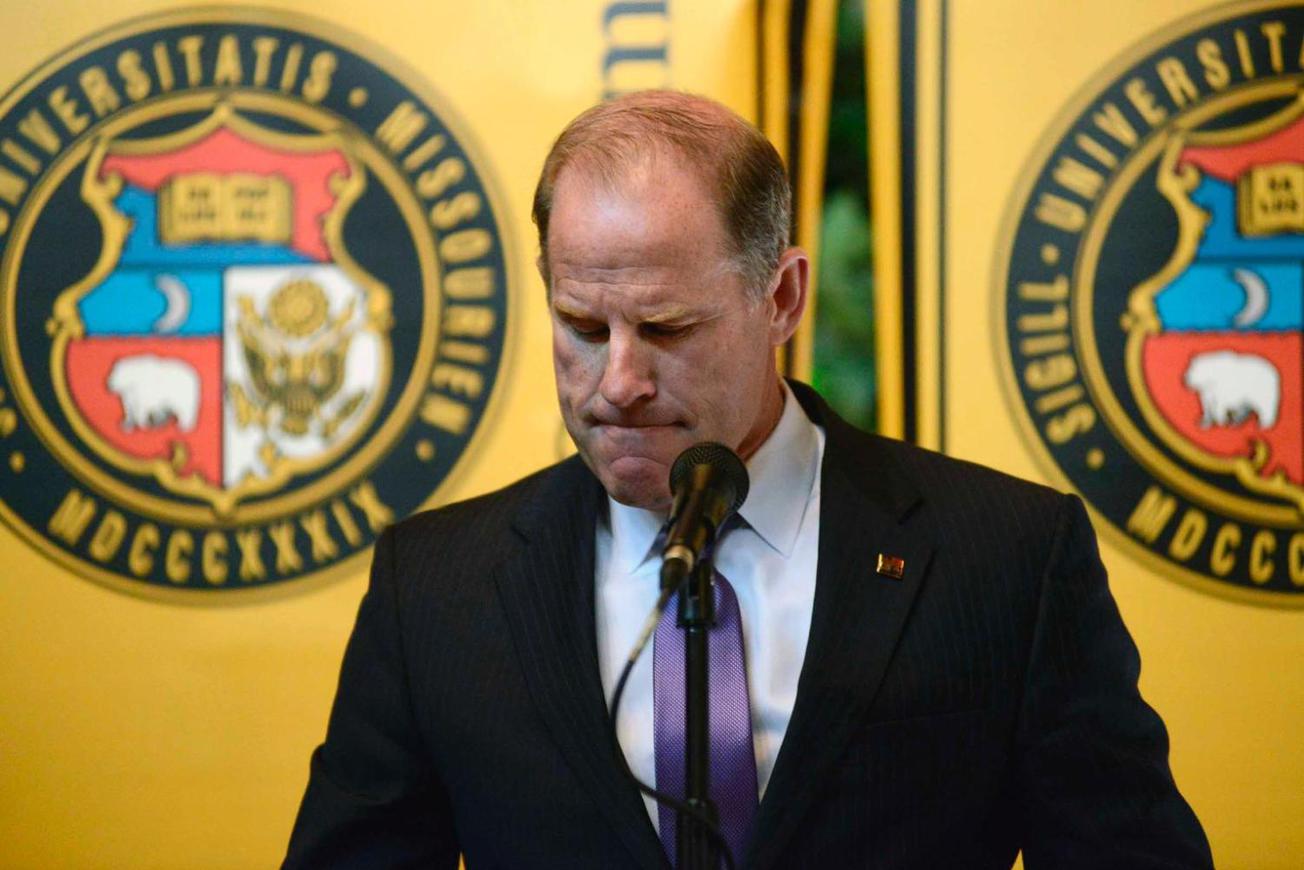The abrupt resignation Monday of the University of Missouri’s system president and chancellor was a powerful victory for student advocacy on a big college campus, but experts say it was also a failure of college leaders to recognize an impending crisis and react quickly enough.
Missouri’s sluggish response to a series of race-related incidents led to months of student protests, culminating in the black members of the football team saying on Sunday they wouldn’t play in an upcoming game, and the faculty on Monday walking out.
Students and faculty blamed Wolfe for his general dismissiveness of student complaints about racial slurs, taunts and, most recently, a swastika made of human feces on a dormitory wall.
A Gallup survey conducted by Inside Higher Ed in 2014 found more than 90 percent of college presidents surveyed felt that race relations on their campus were generally good. But the results may be a sign, not of positive change, but of educational leaders ignoring an industry-wide problem.
“I don’t think that the majority of campuses and campus presidents take these issues seriously,” said Marybeth Gasman, a professor of higher education at the Graduate School of Education at the University of Pennsylvania. “Too many college presidents don’t do enough and hope the problem goes away.”
Dan Hill, president of public relations firm Ervin/Hill Strategy, noted that most colleges and universities tend to act slowly and conservatively when it comes to issues of race. While many colleges manage crises like shootings quickly – by locking down the campus immediately, for example, the response to racial tensions is often denial and delay, he said.
The administrators at the University of Missouri, he said, failed to anticipate the gravity of the race-related incidents and was unable to execute a proper crisis management strategy.
“People get paralyzed, they don’t know what to do,” Hill said. “What people have to do immediately is show concern.”
Jack Deschauer, a senior vice president at Washington-based public relations firm Levick, felt the administration’s inability to communicate proactive steps to its students shredded the trust between the leadership and the campus community.
“The answer can never be ‘no comment,’ ” Deschauer said. “The president wouldn’t have had to resign had he been a bit responsive at any point in the process.”


